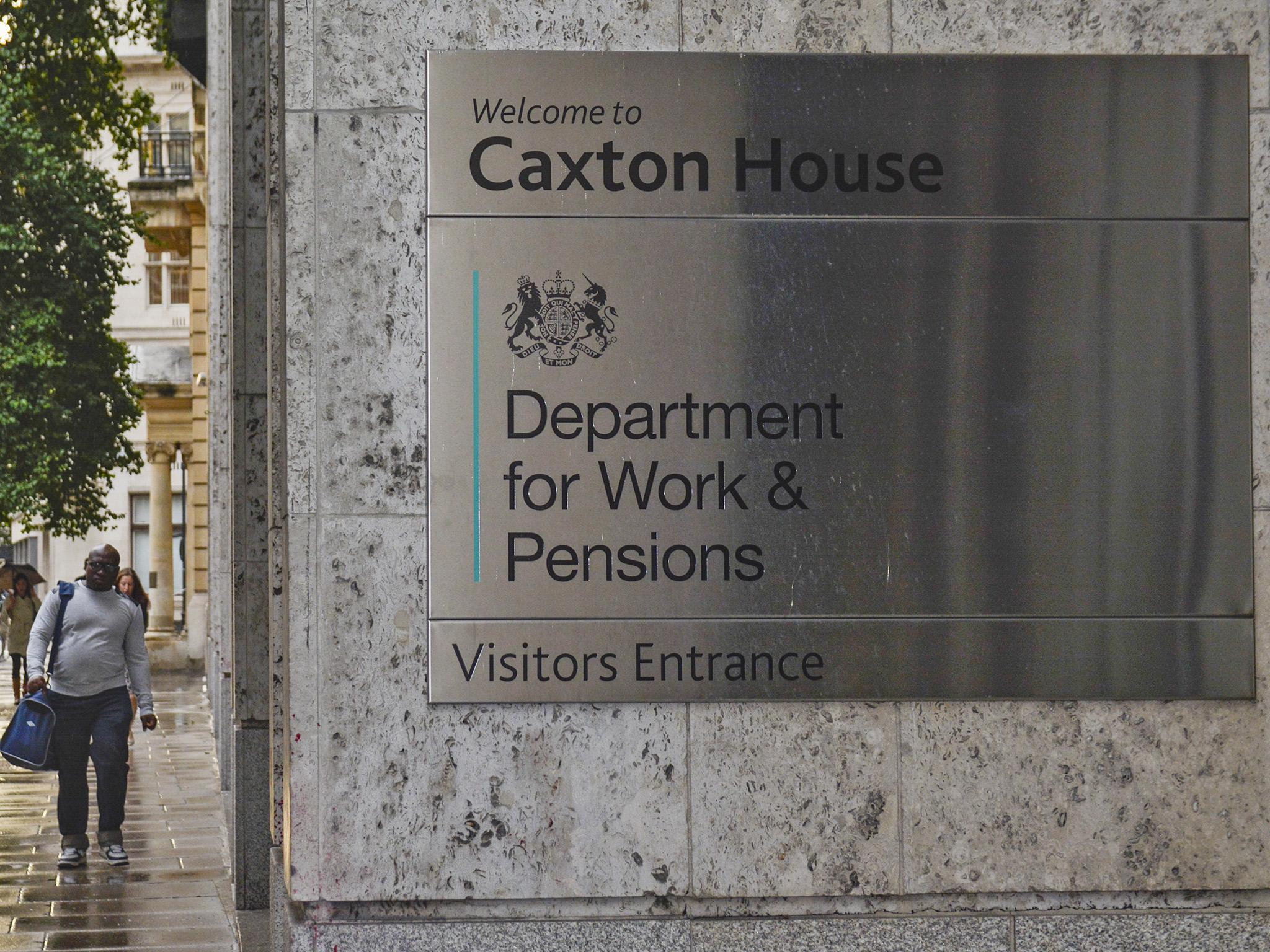Your support helps us to tell the story
From reproductive rights to climate change to Big Tech, The Independent is on the ground when the story is developing. Whether it's investigating the financials of Elon Musk's pro-Trump PAC or producing our latest documentary, 'The A Word', which shines a light on the American women fighting for reproductive rights, we know how important it is to parse out the facts from the messaging.
At such a critical moment in US history, we need reporters on the ground. Your donation allows us to keep sending journalists to speak to both sides of the story.
The Independent is trusted by Americans across the entire political spectrum. And unlike many other quality news outlets, we choose not to lock Americans out of our reporting and analysis with paywalls. We believe quality journalism should be available to everyone, paid for by those who can afford it.
Your support makes all the difference.A crackdown by the Department for Work and Pensions against its own employees’ trade unions has been declared unlawful by the High Court.
The DWP had scrapped the “check-off” system for collecting union subscriptions – which previously allowed employees to pay their dues through their salaries without extra bureaucracy.
But the scrapping, described by PCS union general secretary Mark Serwotka as “vindictive”, was ruled unlawful at the High Court on Friday.
Judge Elisabeth Laing said DWP staff had a contractual right to have their subscriptions paid by check-off and it should not have been scrapped without agreement.
The department scrapped check-off a year ago along with HM Revenue and Customs, Home Office, Ministry of Justice and Ministry of Defence.
In 2013 a similar ruling prevented the Department for Communities and Local Government from ending the system.
At the time of that judgement the then Chief Secretary to the Treasury, Danny Alexander, said there was no fiscal case for scrapping the policy and that doing so would not save any money.
Ending check-off has however cost trade unions significant amounts of money in direct debit fees – opening up the possibility that the PCS could be awarded damages for loss of income.
Mr Serwotka said it was “scandalous” that the Department was spending money on legal fees to defend the scrapping.

“It has always been clear that the political decision to remove check-off was unnecessary and vindictive, and we have comprehensively been proved right,” he said.
“This is not just a defeat for DWP, it is a victory for all unions over a major injustice.
“And it is scandalous that taxpayers again face huge legal bills because Tory ministers have an obsession with trying to undermine trade unions in the workplace.”
The Government’s Trade Union Act had originally included plans to scrap check-off across the civil service but in April the Government backed down on the policy at the law’s Bill stage after opposition in the House of Lords.
The latest court judgment is the latest in a string of legal setbacks for the DWP.
The controversial “bedroom tax” was branded “discriminatory” and “unlawful” by a court in January of this year.
In March the DWP also lost a legal challenge to keep problems with universal credit under wraps after a freedom of information request from campaigners.
At the end of last month benefit sanctions handed out to thousands of people were also declared unlawful by the Court of Appeal.
The Independent understands that the Department is unlikely to appeal the latest judgment.
A DWP spokesperson said that it had consulted with trade unions on the proposal before going ahead with it.
“We are considering the courts judgement and our position,” she said.
“The Trade Union Act includes a provision that the administrative burden and cost of staff paying subscriptions should be transferred to the unions.
“The Department consulted with trade unions and gave notice of the intention to remove this facility.”

Join our commenting forum
Join thought-provoking conversations, follow other Independent readers and see their replies
Comments